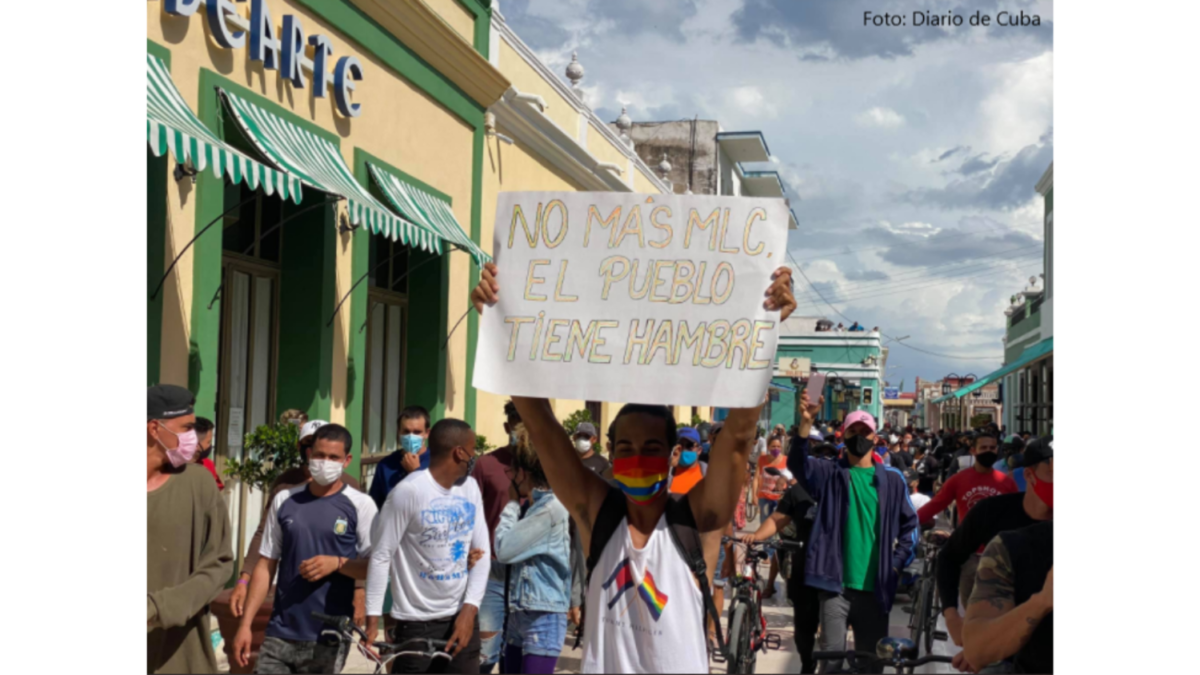#SOSCuba: Race and Equality Demands Respect for Life and the Right to Protest
Washington D.C., July 12, 2021.- In response to the massive protests that took place on Sunday, July 11, 2021 in different cities in Cuba, the Institute on Race, Equality and […]

Washington D.C., July 12, 2021.- In response to the massive protests that took place on Sunday, July 11, 2021 in different cities in Cuba, the Institute on Race, Equality and Human Rights (Race and Equality), states its support for them, framed in the rights to association, peaceful protest, and in the set of human rights of Cubans recognized in their Constitution, in the Universal Declaration of Human Rights, and in the American Declaration on the Rights and Duties of Man.
Race and Equality, therefore, condemns that – contrary to its obligation to respect life and freedom of expression – the Government has reacted by repressing the mobilizations with disproportionate use of force, arbitrary detentions, energy shut-offs, and blockages of internet services, to which can be added the declarations of President Miguel Díaz-Canel in which he called upon his supporters to “confront these protests in the streets.”
Throughout the day on Sunday, the citizen protests took place in more than fifty cities across the Island, including Havana, Santiago de Cuba, Pinar del Río, San Antonio de los Baños, Camagüey, Santa Clara, Holguín, Cienfuegos, and Guantánamo. This wave of protests, which is unprecedented in the last sixty years of Cuban history, has been motivated by the profound health crisis in the country from the Covid-19 pandemic. This past July 8, the director of the Pan-American Health Organization (PAHO), Carissa Etienne, confirmed that Cuba is the country in the Caribbean with the largest weekly number of cases. As such, in the first ten days of July, the Ministry of Public Health counted 44,546 new cases and 235 deaths.
This is in addition to a marked shortage of food and medicine, as well as severe restrictions on the exercise of civil and political rights, and to the persecution and harassment of activists, artists, and independent journalists. All of this led to thousands of people going out into the streets this Sunday to express their demands and call for solutions from the authorities. Nevertheless, from the beginning the Police tried to stop the mobilizations and censure the independent press that was covering them, including violent aggression against Ramón Espinosa, a Spanish photographer and Associated Press (AP) reporter. Furthermore, the Government has deployed to the streets an elite group of the Revolutionary Armed Forces of Cuba known as “the black berets.”
Parallel to this, President Miguel Díaz-Canel made declarations in which he threatened the protesters, signaling that “they will have to pass over our corpses and we are ready for anything,” qualifying them as “mercenaries” and “counterrevolutionaries.” Therefore, on Monday – when more information about the repression on the part of the authorities circulated – Díaz-Canel, who is also First Secretary of the Cuban Communist Party, said that the protesters “have gotten the response they deserved.”
Activists and human rights defenders from different parts of the country shared with Race and Equality that since Sunday they are experiencing shut-offs in electricity and Internet service. They also referred to the Police, State Security, and paramilitaries besieging their houses, and that the persecution and threats against opposition members had intensified. Meanwhile, the organization Cubalex published a list of 94 people detained and disappeared, among them the leader of the Patriotic Union of Cuba, José Daniel Ferrer.
Race and Equality is following the protests in Cuba with much concern, given the repressive response of the Government and its eagerness to stigmatize citizen expression, exposing the protesters to attacks from its supporters. We believe that these protests respond to a legitimate feeling of the population, which has been gravely affected by the Covid-19 pandemic, the economic crisis, and the human rights situation in the country. We call upon the authorities to cease the repression and open the channels of communication with the protesters in order to hear their demands and offer opportune responses in line with their human rights obligations.
Additionally, we urge the Inter-American Commission on Human Rights (IACHR) and the human rights mechanisms of the Universal System, to reinforce their monitoring of the human rights situation on the Island, for the sake of formulating recommendations to the State to guarantee the rights to life, personal integrity, protest, and freedom of expression in the midst of this new wave of citizen protests.

